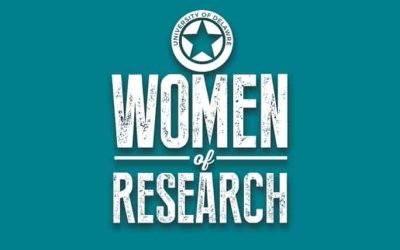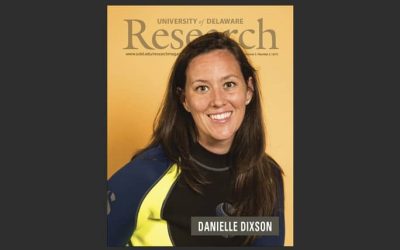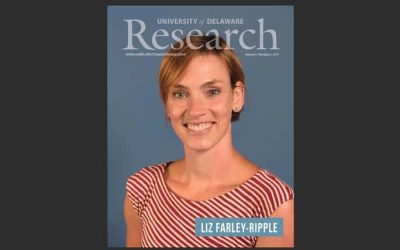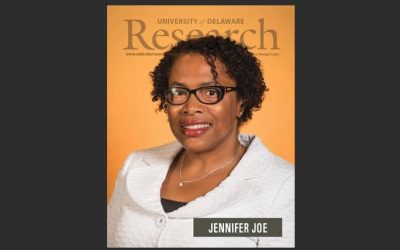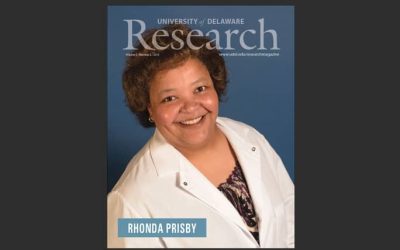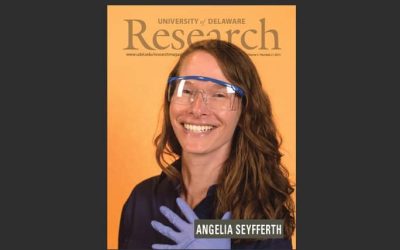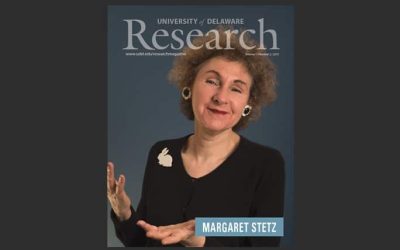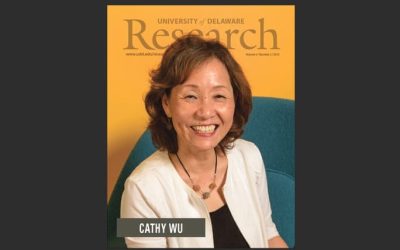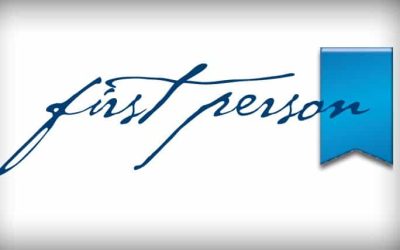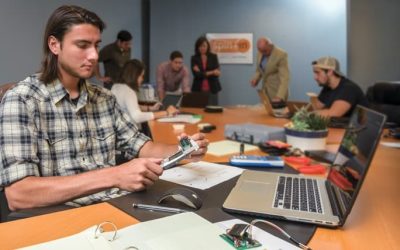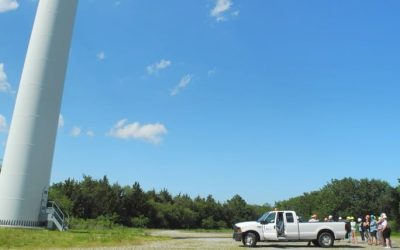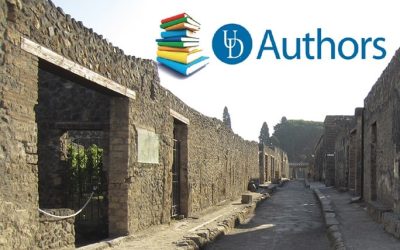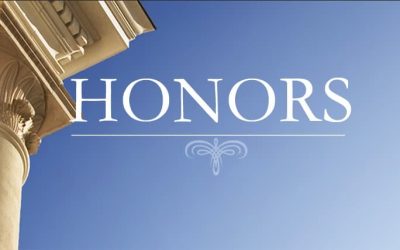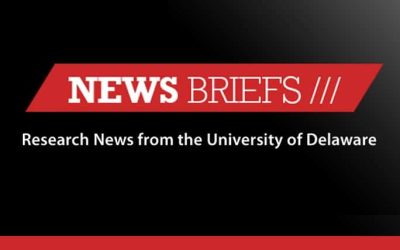
ADVANCE-ing UD
The title of a recent Freakanomics Radio segment caught my attention: “The Harvard President Will See You Now.” The next 40 minutes laid out, in interview format, a compelling narrative of the life of Drew Gilpin Faust. Faust became Harvard’s president in 2007 shortly after the dismissal of Larry Summers, who famously posited that one of the reasons there are too few women in leading science positions is “issues of intrinsic aptitude.”
Two years after Summers’ remarks, at the press conference announcing her presidency, Faust found herself being asked how it felt to be the woman president of Harvard. She shot back with confidence, “I’m not the woman president of Harvard, I’m the president of Harvard.” The story of a young girl who grew up in the segregated South in the 1950’s to become the first woman president in Harvard’s 350-year history is inspirational.
At UD, there are faculty achieving well-earned success through their research, with personal stories as compelling as Faust’s. Seven such faculty members are highlighted on the cover and in this issue of UD Research. Indeed, there are commonalities among them—a steadfast commitment to excellence, unrelenting intellectual curiosity, mentors and role models who inspire, and a disdain for the status quo. I encourage you to read their stories to learn about their inspirations, the challenges they have faced and the scope and quality of their scholarly endeavors.
To achieve the levels of research excellence and impact to which the University of Delaware aspires, we must diversify our faculty, staff and student populations. The grand challenges UD highlights in its new strategic plan, Delaware Will Shine, will be successfully addressed only if there are diverse teams bringing their unique talents, perspectives and experiences to bear on our world’s most intractable problems. Put another way, diversity is a necessary component—a sine qua non—of excellence.
Last year, UD was one of only four institutions to receive a prestigious $3.3 million award from the National Science Foundation. The so-called ADVANCE IT program is designed to enhance the representation and advancement of women faculty in STEM fields and women faculty of color in all fields. The program will ensure an inclusive campus culture of excellence by bringing awareness of the impact of unconscious bias in recruitment, hiring and advancement practices. The results will lead to a climate that ensures success for women faculty, or as Drew Faust would say, faculty.
MORE STORIES
Women of Research
Extraordinary research is underway at the University of Delaware, and women are all over it. We profile seven researchers who offer insight into their work—from coral reefs to corporations—what hurdles they have cleared and what keeps them moving forward.
Danielle Dixson
A chance encounter with a tour guide at the Shedd Aquarium in Chicago is what sparked Minnesota native Danielle Dixson’s interest in marine biology. “I was 5 years old and the guide gave me a book for asking a clever question about whales,” she says.
Liz Farley-Ripple
Elizabeth Farley-Ripple did not set out to become an education researcher. As an undergraduate at Georgetown University, she started out majoring in Latin American Studies. Then came Professor Bill McDonald’s sociology course focusing on research methods. “I had an aha moment,” says Farley-Ripple. “I realized I could have an impact—and actually apply the ideas I had been reading about.”
Jennifer Joe
Jennifer Joe, the Whitney Family Professor of Accounting in the Alfred Lerner College of Business and Economics, attributes positive experiences with her professors in college as the impetus for her pursuit of an academic career.
Rhonda Prisby
Rhonda Prisby had a plan for her master’s degree in exercise physiology. She expected to work in a cardiac rehabilitation clinic. Then a professor mentioned something she hadn’t considered—her potential as a researcher.
Angelia Seyfferth
Having had the chance to conduct research taking water samples on the Chesapeake Bay early in her undergraduate studies, Angelia Seyfferth, assistant professor in the Department of Plant and Soil Sciences, is hoping to pass her enthusiasm for research to young scholars in her lab.
Margaret Stetz
As a scholar with diverse interests from 19th-century British literature to military history and fashion studies, and who shares her work in a variety of academic and community forums, Margaret D. Stetz might be expected to have difficulty summarizing what she does.
Cathy Wu
For Cathy Wu, becoming a bioinformatics expert was kind of accidental. Armed with a Ph.D. in plant pathology and a postdoc in molecular biology, she followed her husband on a job move to Tyler, Texas, in the mid-1980s, but was unable to land a good faculty position there.
Never underestimate the power of good mentoring
A few years ago, a newly hired female faculty member had the following experience: A male colleague responded to her hallway greeting by saying hello and adding, “I hope everyone is making you feel welcome.”
Spin in spins out innovation
The University of Delaware’s “Spin In” program, founded, managed and trademarked by the Office of Economic Innovation and Partnerships, connects University undergraduate students with community entrepreneurs and early-stage startups to give them an inside look at business innovation in action and a chance to apply what they’re learning in real-life situations.
Making it clear
For the past three years, almost 90 educators from around Delaware and Maryland have been working with scientists and environmental experts from the University of Delaware and the University of Maryland. The goal is to develop a richer understanding of climate change and build effective activities and instruction plans to help their students understand the data and find potential solutions.
Solar Strong
The vast majority of the sun’s extraordinary power remains out of reach—absorbed, deflected or otherwise inaccessible to today’s power-hungry masses—but University of Delaware researchers continue their quest to capture more, store more and deploy it more efficiently.
Slaves’ lives emerge from ancient ruins
“Detfri slave of Herennius Sattius” and “Amica slave of Herennius” reads the terra-cotta tile. It was discovered atop the ancient temple in Pietrabbondante, a town tucked into the bare rock and evergreen-covered mountains more than 100 miles east of Rome.
Honors
• Dugan named Truman Scholar
• Overby elected to board of Oak Ridge consortium
• Backbone of the profession
Fearsome Fridays
Tom Fernsler, “Dr. 13,” now retired from the Delaware Center for Teacher Education, knows a lot about Friday the 13th. Do you? Take our quiz and find out!
News Briefs
• Changing the color of light
• What’s it really mean if a CEO is greedy?
• Research All-Stars field new findings




